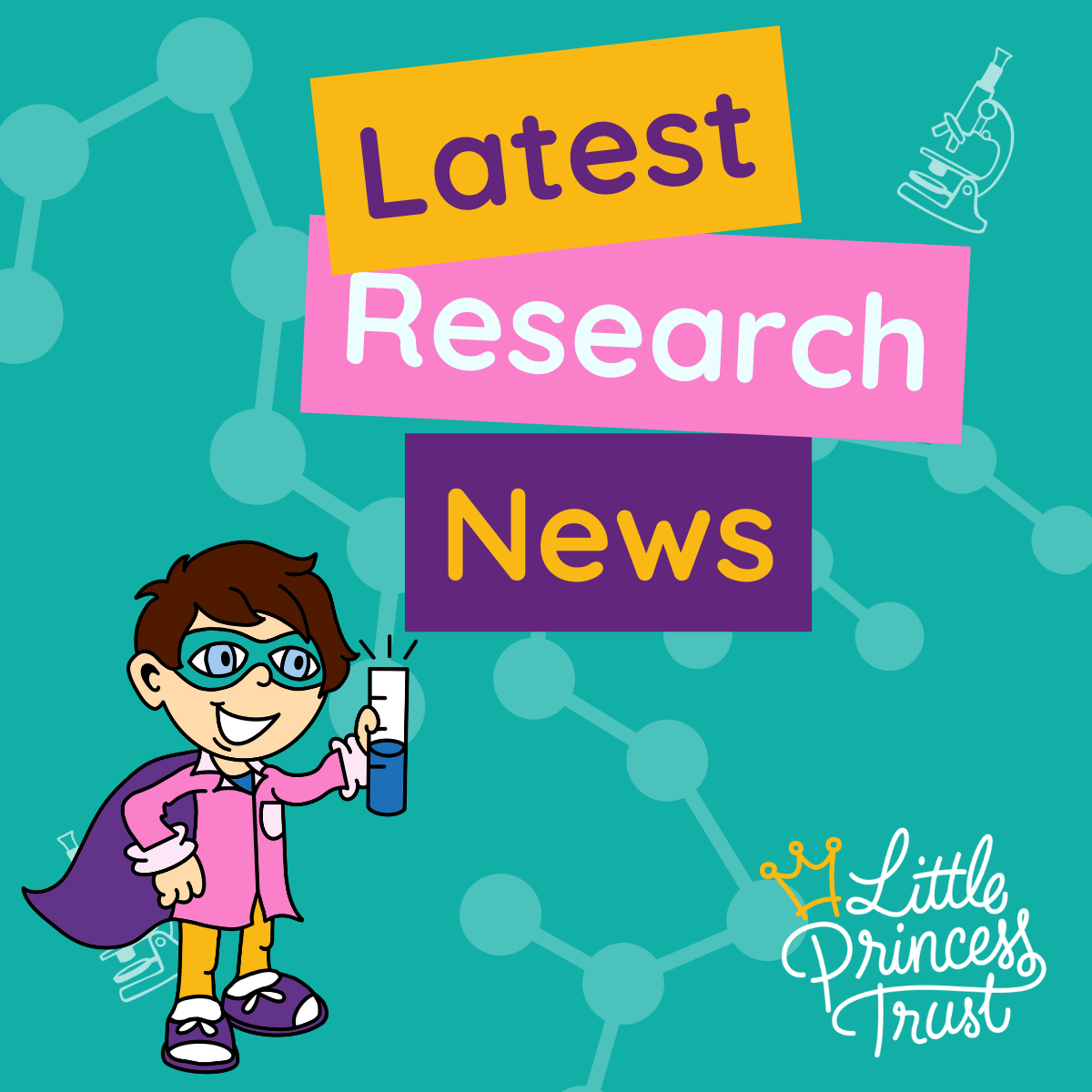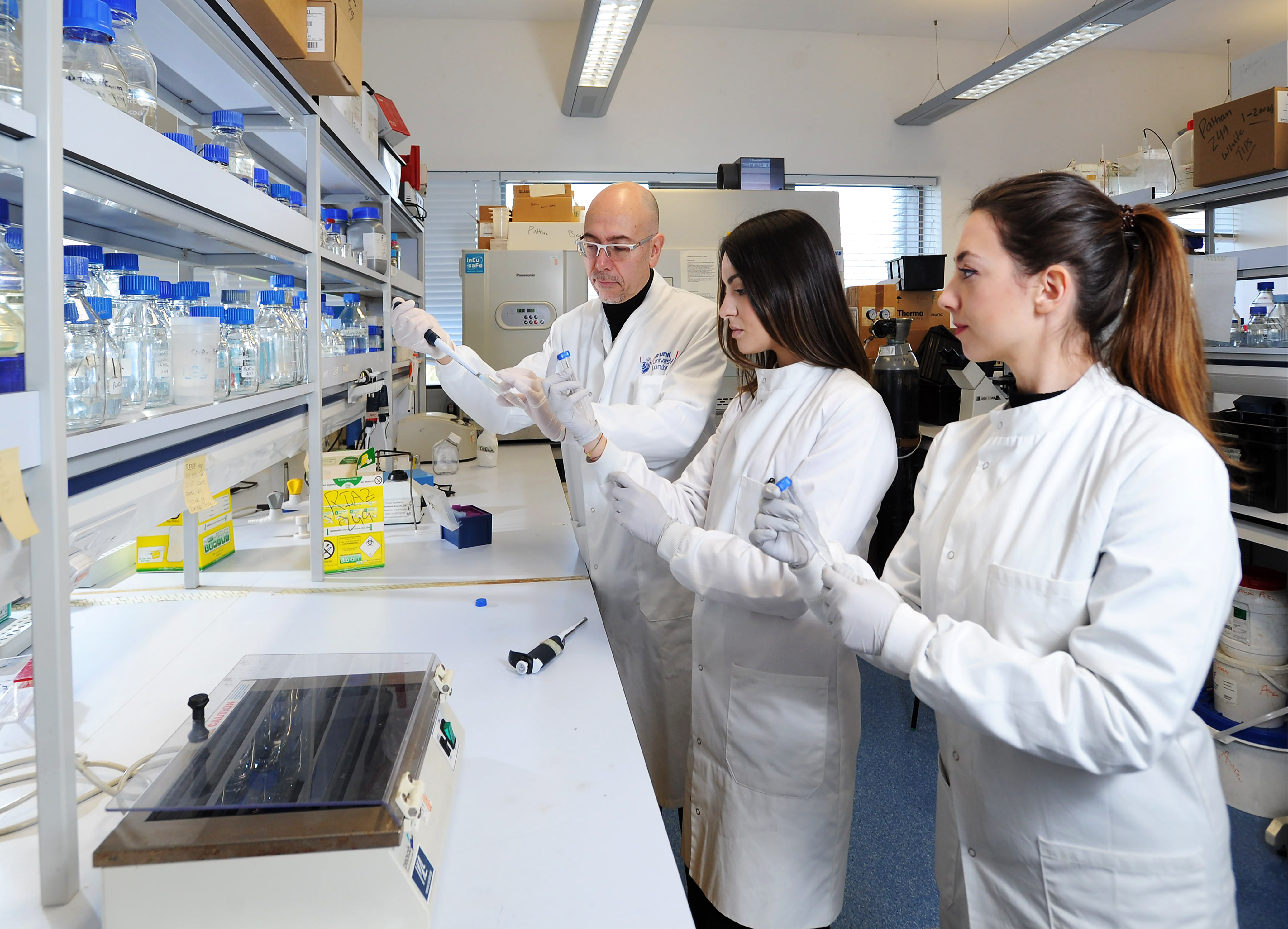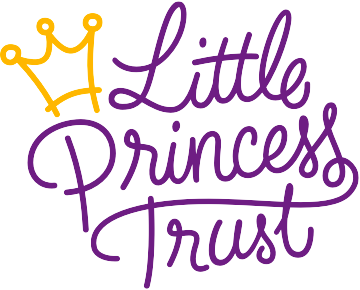Little Princess Trust News
Aiming to improve survival rates for children with neuroblastoma

LPT funds two new research projects to study common cancer type
The Little Princess Trust (LPT) is delighted to announce the funding of two new research projects into childhood neuroblastoma.
Neuroblastoma is the most common type of cancer in children under the age of one and can be very hard to treat in such young patients.
While some patients can be treated successfully with current treatments, children with more aggressive neuroblastoma may have few options.
New treatments are crucial to improving the future for neuroblastoma patients. In order to develop new treatments, researchers need to understand more about how neuroblastoma develops and resists treatment.
Dr Sally George, from the Institute of Cancer Research, aims to uncover how neuroblastoma cells can grow out of control in her new project, titled “Understanding chemotherapy doesn't work as well for some children with neuroblastoma.
She said: “In this project we are trying to understand why one subtype of neuroblastoma is so difficult to treat. This subtype has unusual telomeres, which are sections of DNA that protect the ends of chromosomes, that allow the cancer cells to grow unchecked.
“We know that these patients often do not respond to standard therapies, but we don’t know why.”

To find out more, Sally’s team are creating ‘models’ in their lab, which are cells that behave like early neuroblastoma cells. Using the nerve cells that neuroblastoma develops in, she will make them develop the unusual telomeres.
The team can then study these to find out how this changes the behaviour of the models and how they respond to treatment.
Sally said: “This project is focused on making new models and understanding biology, which is vital if we are to make discoveries that will have a meaningful impact in the future.
“Developing new and innovative models will not only help us understand the underlying biology of neuroblastoma and why it is so difficult to treat, it will also provide a foundation to enable us to perform research in the future to identify more effective treatments.”
Professor Arturo Sala is leading the second new project, titled Using anti-depressants to improve immunotherapy for neuroblastoma, from Brunel University London.
His project aims to make immunotherapy, a treatment that uses a patient’s own immune system to attack cancer cells, work better for more patients.
He said: “Neuroblastoma is still a very difficult cancer to treat. Children with high-risk neuroblastoma have a very poor prognosis, even with aggressive therapies. Therefore, more effective and less toxic approaches are urgently needed.

“Antibody immunotherapy could be a life-saving approach for neuroblastoma. Unfortunately, it doesn’t work for many patients. We are exploring the possibility that drugs used for other purposes can be combined with immunotherapy to increase the percentage of patients that will benefit from it.”
The reason that immunotherapy often doesn’t work is because the immune system can make cells that stop the body’s normal ability to fight tumours.
In this project, Arturo’s team will be looking at how anti-depressants like Prozac fight both these immune cells and the neuroblastoma cells.
Arturo hopes that, if their project goes well, anti-depressants could become standard practice when using immunotherapy to treat neuroblastoma.
He said: “I feel very excited since I believe that our approach, if validated in laboratory systems, could be of real benefit to children with neuroblastoma.
"We predict that, at the end of our research project, we could translate the results within five years.”
These young patients can have so few treatment options available to them
Phil Brace, CEO of LPT, said: “We are delighted to be funding these new projects, as we can see that they could make a huge impact for children with neuroblastoma.
"These young patients can have so few treatment options available to them, and these treatments often do not work.
"Our new projects take a two-pronged approach – improving current treatments so that they will work for more patients and investigating what leads to treatment failure in order to identify more effective treatments.”



